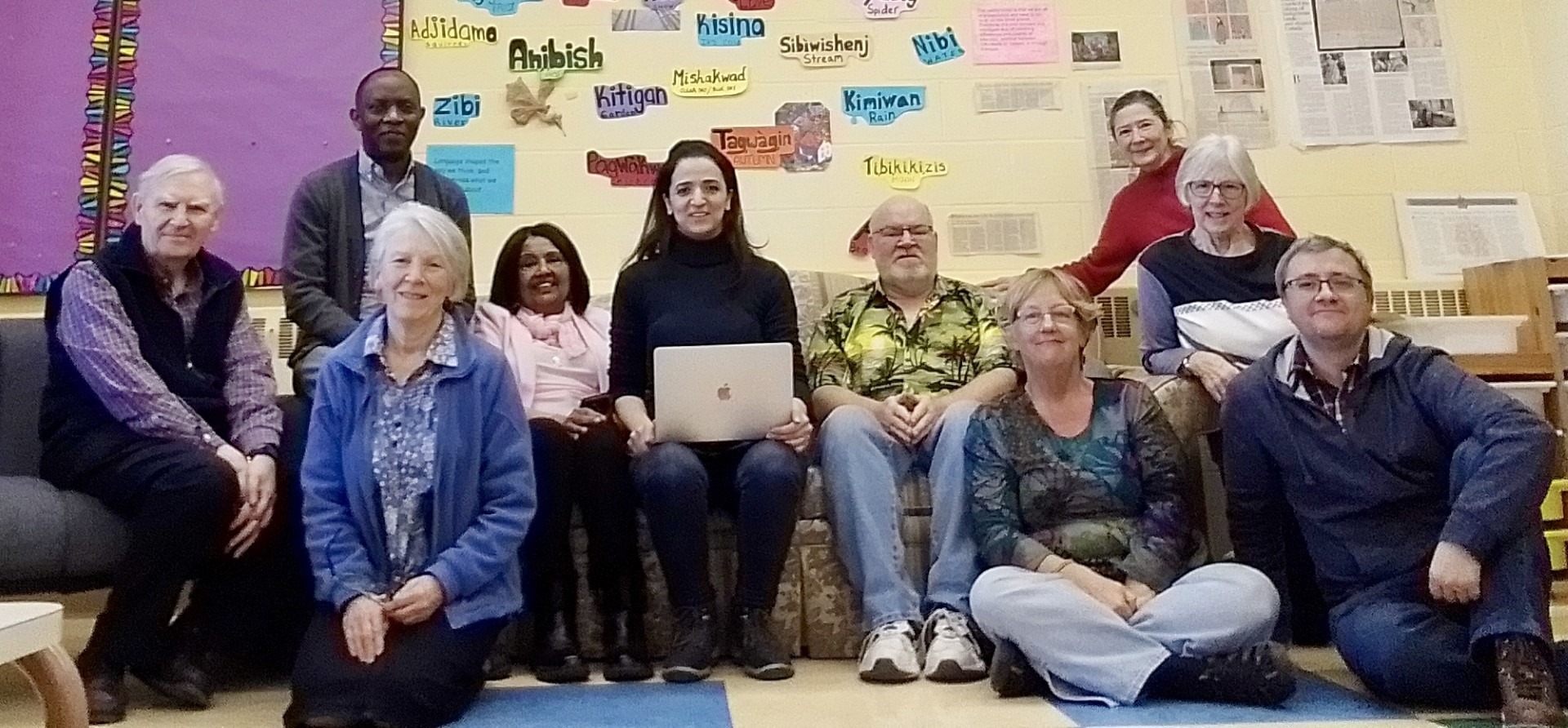It was our privilege and pleasure on Monday, March 11, to spend an inspiring couple of hours in the company of Wadiaa Khoury from Lebanon. Joseph Vumiliya kindly drove her to Ottawa from Montreal, where she was visiting family, to join eight of us gathered in a meeting room at the First Unitarian Congregation of Ottawa, where IofC Canada has its national office.
Wadiaa is Associate Professor at the Faculties of Education of the Lebanese University and Université Saint-Joseph. Her PhD thesis was on Educators’ Civic Agency and her teaching and research currently focus on the Lebanese Education System, Curricula and Citizenship Education. Through her engagement with IofC since 2001, she has visited more than 20 countries, studying education systems and observing approaches to citizenship education.
She shared with us her main interest and passion, which is exploring how to empower educators in Lebanon through self-discovery of civic agency and their role in shaping the country’s policy instead of bearing the consequences of politics and poor governance that has led the country into despair. This has led her to the creation of the Teachers Agents of Social Change (TASC) initiative. It is this initiative that earned her the 2023 IofC International Trust-builder of the year award (www.tasc-lebanon.org). Earlier this year she was in India at the Education Today Society Tomorrow conference in Panchgani sharing her experiences and comparing approaches.
TASC has actively engaged with teachers from 60 schools throughout the confessional and public education systems in Lebanon with a very positive response. The approach, rather than prescribing values and virtues, asks questions that lead participants to reflect on the kind of society they want to see and explore the actions and qualities required of them to build it.
TASC, in partnership with the ‘nafda’ education collective, has produced the ‘Al-Saha’ (meaning: ‘public square’) board game to enhance student and teacher formation on Active Citizenship, Good Governance and Social Justice (‘nafda’ goals).
Wadiaa also shared with us personal reflections on the enormous and very painful challenges facing her country with the Syrian refugees overwhelming Lebanon; and the Holy Land with the current unbearable violence. Facing the lack of objective commentary, she encouraged us all to seek out balanced views on the current situation by reaching out to key people who are not impulsive or fanatic. Asked whether she was not overwhelmed and discouraged by these horrendous events, she said that even a calamity has to be viewed as an opportunity to build something better for the future.
We came away from the gathering, moved, inspired and challenged to find creative and innovative ways to engage people as agents of change.
Richard Weeks
